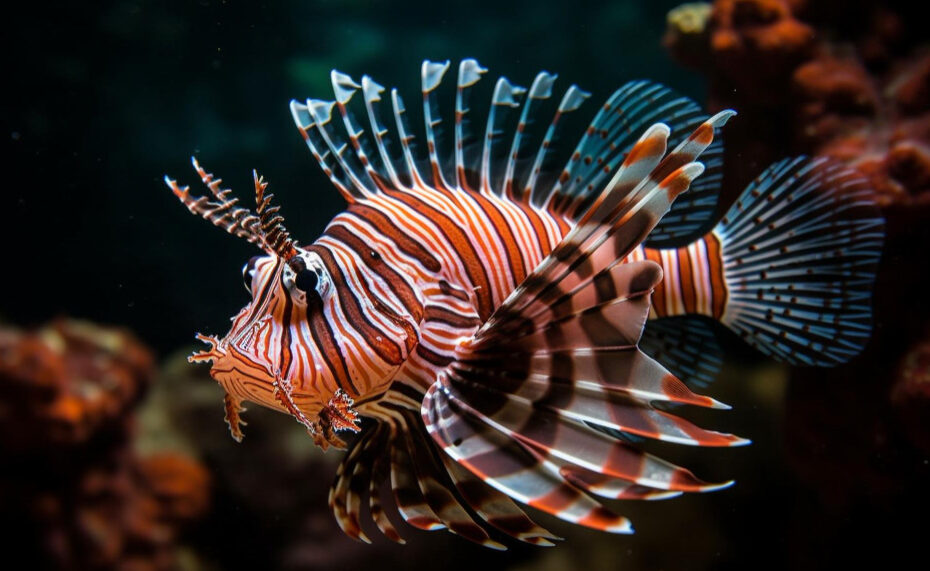Dwarf Lionfish are a popular choice among marine aquarium enthusiasts due to their striking appearance and manageable size. Here’s a rundown on these fascinating fish:
- Appearance: Dwarf Lionfish have a dramatic appearance with long, flowing fin rays and an array of stripes or patterns. They come in various colors, including reddish, brown, or banded hues.
- Species: The term “Dwarf Lionfish” can refer to several species, but commonly it denotes the fuzzy dwarf lionfish (Dendrochirus brachypterus) and the zebra lionfish (Dendrochirus zebra).
- Size: As their name suggests, they’re smaller than many other lionfish species, typically growing up to 7 inches (18 cm) or less.
- Habitat: They are native to the Indo-Pacific region.
- Behavior: They are generally more sedentary compared to other marine fish. Dwarf Lionfish often perch on rockwork or substrate and wait for prey to come near. They use their large pectoral fins to herd and corner their prey.
- Diet: They are carnivorous, primarily feeding on small fish and crustaceans. In an aquarium setting, they might need to be fed live foods initially, but many can be trained over time to accept frozen foods like mysis shrimp or silversides.
- Aquarium Care:
- Tank Size: A minimum tank size of 30 gallons is suitable for one dwarf lionfish, but more space is always better.
- Compatibility: They can be kept with other fish of similar size that they won’t view as prey. However, they may become targets for very aggressive fish.
- Safety: Like all lionfish, the spines of the dwarf lionfish are venomous. While a sting is not typically life-threatening for healthy adults, it can cause intense pain, swelling, and other symptoms. Always exercise caution when handling or working around these fish.
- Reef Compatibility: While they are less likely to harm corals than many other fish, dwarf lionfish might eat small ornamental shrimp or other small invertebrates. If you’re considering adding one to a reef tank, be mindful of this.
- Lifespan: With proper care, dwarf lionfish can live for several years in captivity.
- Interesting Fact: Due to their slow and deliberate movements, lionfish can be easy targets for marine parasites in the wild. However, their venomous spines offer some protection against potential predators.
If you’re considering adding a dwarf lionfish to your marine aquarium, it’s essential to do thorough research to ensure the safety and well-being of both the lionfish and other inhabitants.

